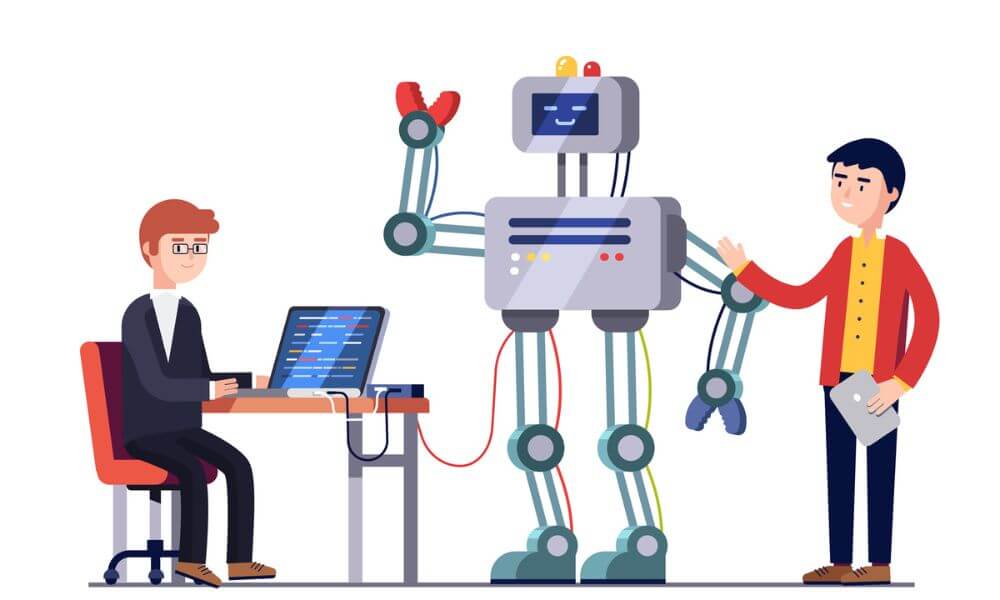What is Robotic Process Automation(RPA)? The Power of Automation
-
Tools Terminal
- September 4, 2023

Organizations continuously look for innovative methods to boost efficiency and reduce expenses in today’s fast-paced business world. A revolutionary technique that addresses these problems is robotic process automation (RPA). RPA automates repetitive and rule-based processes using software robots or bots so that human employees may concentrate on more strategic and value-added jobs.
RPA and Intelligent Automation
Robotic Process Automation integrates into the broader framework of intelligent automation. Intelligent automation combines RPA with artificial intelligence (AI) and machine learning (ML) capabilities. This combination enables RPA bots to perform routine tasks, make intelligent decisions based on data analysis, recognize patterns, and adapt to changing circumstances. Merging RPA with AI enhances an organization’s capacity to manage complex processes.
RPA and Artificial Intelligence
Artificial intelligence plays a vital role in enhancing RPA’s capabilities. RPA bots, when infused with AI, can analyze unstructured data, interpret natural language, and even perform tasks that require reasoning and judgment. For example, AI-powered RPA bots can read and understand emails, extract relevant information, and initiate actions based on the content, making them invaluable for customer support and data analysis tasks.
How Does RPA Work?
The mechanics of RPA involve creating and deploying software robots that mimic human actions within digital systems. These bots interact with various software applications, databases, websites, and more, just as a human user would. RPA platforms provide a user-friendly interface for designing and configuring these bots. They can perform tasks like data entry, copying and pasting information between applications, and following predefined workflows. Importantly, RPA bots can perform these tasks much faster and without errors.
The Benefits of RPA

Increased Efficiency
This subsection highlights one of the most significant advantages of RPA: increased efficiency. We explain that RPA eliminates repetitive tasks, allowing employees to focus on more strategic work. This translates into faster processes and better resource utilization.
Cost Reduction
Cost reduction is another essential benefit discussed. By automating tasks, readers learn that organizations can significantly reduce labor costs and minimize errors. The financial implications are clear – RPA leads to substantial long-term savings.
Enhanced Accuracy
This part emphasizes the precision of RPA bots. The reader understands that RPA significantly reduces the likelihood of human errors that can be costly and time-consuming.
Scalability
Scalability is the final benefit discussed. The section highlights that RPA can be deployed in businesses of all sizes. As the organization grows, additional bots can be added to handle increasing workloads without significant disruptions.
Challenges of RPA
Implementing RPA can come with its own set of challenges:
Integration Complexity: Integrating RPA with existing systems and legacy software can be complex and require careful planning.
Process Identification: Identifying and prioritizing which processes suit automation is critical for success.
Change Management: Employees may resist the introduction of RPA, fearing it could replace their jobs. Change management strategies are essential to address these concerns.
Maintenance: Regularly updating and maintaining RPA bots to adapt to changing requirements and technology updates is crucial.
RPA Use Cases
RPA has various applications across various industries:
Finance: Automating invoice processing, reconciliation, and financial reporting.
Healthcare: Streamlining claims processing, appointment scheduling, and patient record management.
Customer Service: Handling routine customer queries and requests via chatbots and email automation.
Manufacturing: Optimizing supply chain management, order processing, and quality control.
RPA’s versatility makes it adaptable to virtually any process involving repetitive and rule-based tasks.
Top RPA Tools
When considering the implementation of RPA, choosing the right tool for your organization is crucial. Here are some of the top RPA tools in the market:
Automation Anywhere
Automation Anywhere offers a comprehensive RPA platform with robust features for beginners and advanced users. It supports the automation of several tasks and processes.
UiPath
UiPath is famous for its user-friendly interface and a strong developer community. It provides a versatile platform for building and managing automation workflows.
Blue Prism
Blue Prism emphasizes security and compliance, making it an ideal choice for industries with strict regulatory requirements. It offers advanced analytics and reporting capabilities.
Kofax
Kofax specializes in intelligent automation solutions and offers a unified RPA, document capture, and process orchestration platform.
Microsoft Power Automate
Microsoft Power Automate, formerly known as Flow, interacts smoothly with the Microsoft product line, making it an excellent option for businesses that currently use Microsoft solutions.
Robomotion
Robomotion is a cloud-based RPA platform that focuses on simplicity and ease of use. It offers rapid deployment and scalability.
Calculation
In conclusion, Robotic Process Automation (RPA) is a transformative technology that empowers organizations to optimize their operations, reduce costs, and drive efficiency. By harnessing the power of automation, RPA is poised to reshape the future of work across various industries. Its strengths are further expanded by its integration with artificial intelligence, making it an essential tool for the modern business environment.
Frequently Asked Questions
No, RPA and AI are distinct technologies. RPA automates tasks, while AI involves cognitive capabilities such as natural language processing and decision-making.
Implementation timelines vary depending on the complexity of the processes being automated. It can range from a few weeks to several months.
Yes, RPA can benefit businesses of all sizes. Small businesses can use RPA to automate repetitive tasks and improve efficiency, just like large enterprises.
